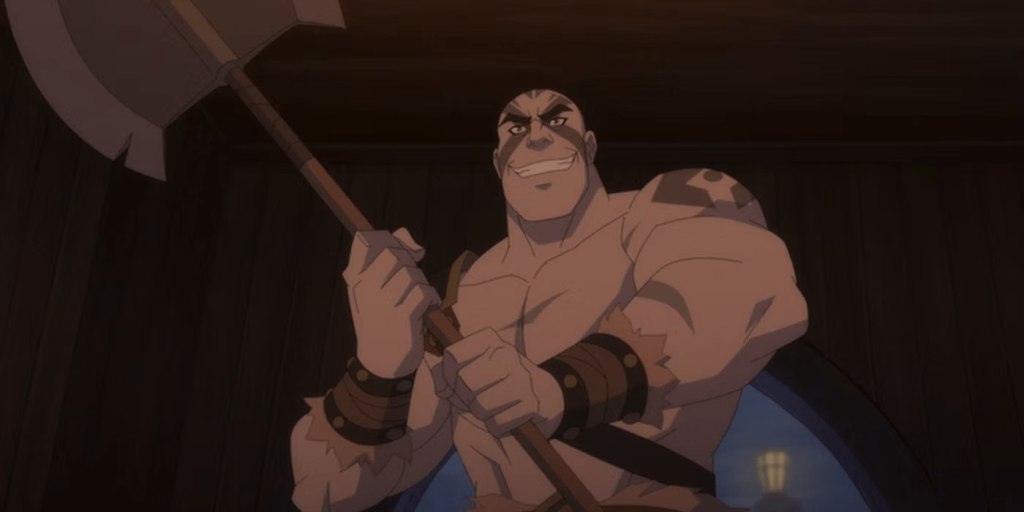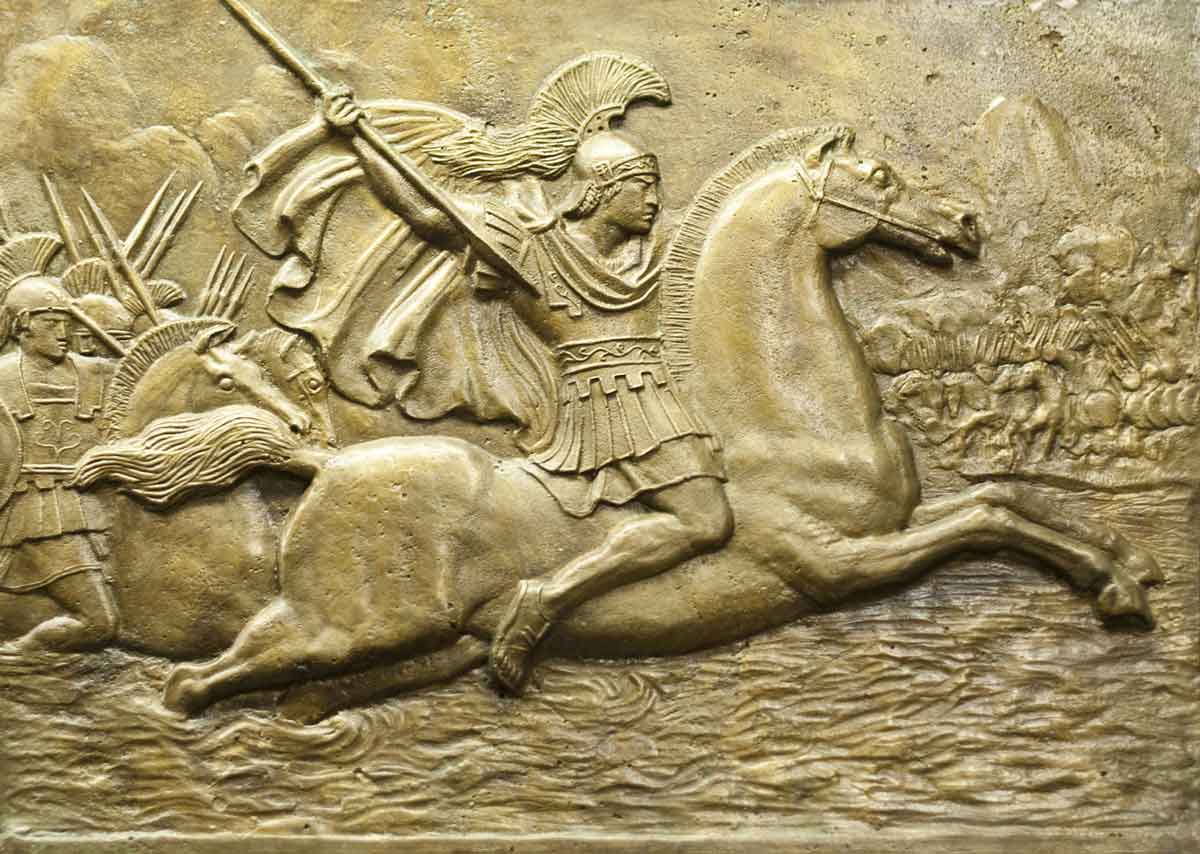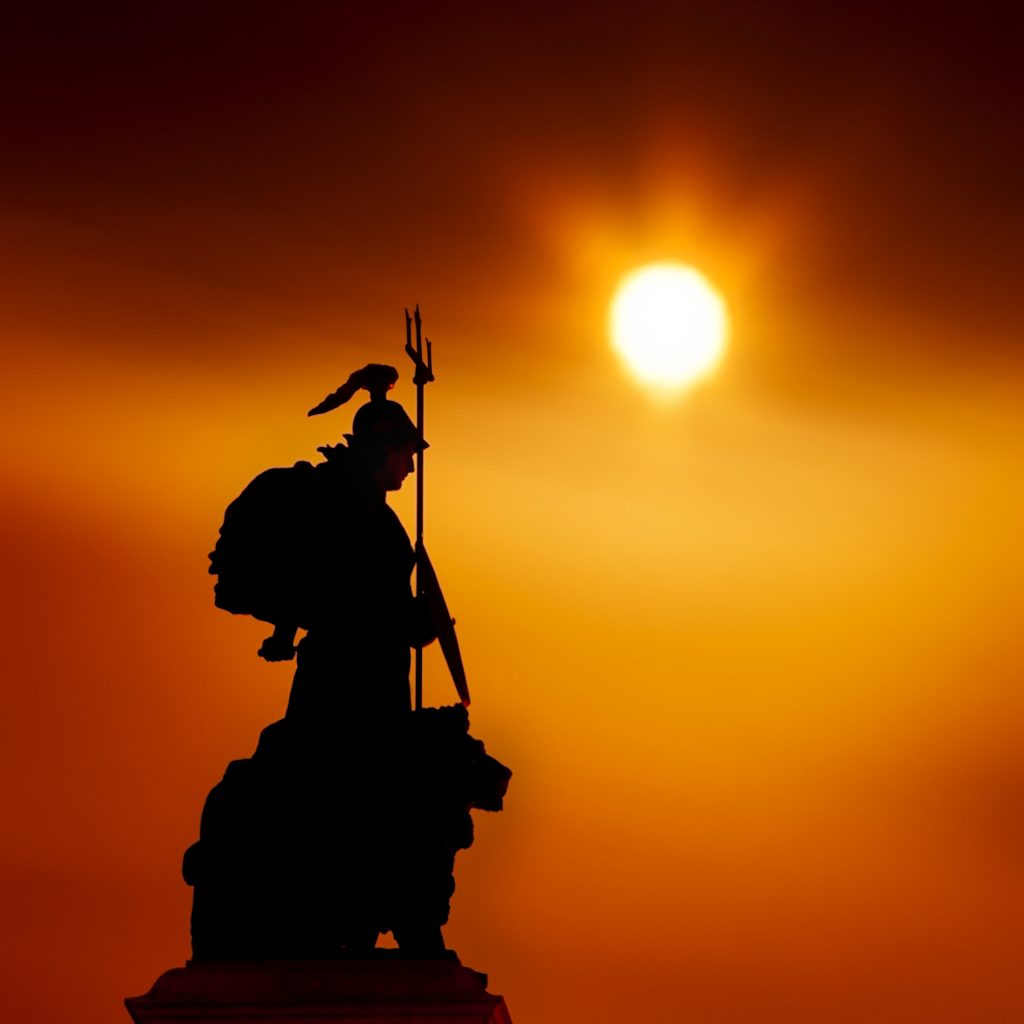Where Did “The Warrior” Come From?
Nobody needs help picturing this archetype. It’s one of the biggest the world over. At some point in every great story, characters must fight. Whenever they pick up a weapon, prepare a spell, or steel the mind, the Warrior is there.
To fight is one of our oldest instincts. We fight for resources, for dominance, for reproduction, and most importantly, for survival. No surprise then that “The Warrior” is a long-held, long-respected archetype in our stories.
Popular visuals for the Warrior include the muscly Conan, the grim-faced Spartan, even Grog Strongjaw from Critical Role.

HISTORY
The Warrior walks among every culture, in every period of history. It is a living archetype, moving proudly from life to the page and back again.
The term comes from “werran,” an Old Saxon and/or Old High German term meaning, “fight, dispute, confusion.” Since a lot of wars tend to start from misunderstandings, it does fit.
Nowadays of course we know Warriors by many names. Soldier. Musketeer. Knight. Viking. Ninja. Samurai.
Warriors shaped as much history as rulers have. Some became rulers; some overthrew them; some fought them by walking away and forging new paths.
Here’s a few real-life warriors you may know of:
- Genghis Khan
- Boudicca
- William Wallace
- Shaka Zulu
- Alexander the Great
- Miyamoto Musashi
- Pancho Villa
- Gráinne/Grace O’Malley, The Pirate Queen
All fought for what they needed, or what they believed in. Some succeeded and some failed. Their relative success is immaterial; the fight is what we remember. What makes them known.
The Warrior is not consigned to history however. They walk among us today, battling on in every sense of the term. You may even know one.
APPEARANCES IN FOLKLORE & FICTION
I could make a loooooong list of Warriors among legends and fiction here, and it wouldn’t be enough. Just from memory, here’s a few:
- King Arthur
- Hellboy
- Thor (I refer to the mythological version here, purists!)
- Ogun
- Sun Wukong, the Monkey King
- Beowulf
- Perseus
- Oya
- Conan
- Wolverine
- Worf
From these and others, authors of the past built great stories, capturing the mighty essence in pages.
(By now those of you who’ve read “The Stiamaq Emerald” know I placed such a warrior in the plot. Maybe, if the book’s popularity grows, some may refer to him with similar respect in the future!)
The Power in the Warrior’s Hands
This one’s easy to see. Challenge is the Warrior’s purview. Challenge to unjust rules, oppression, crimes, etc.
This doesn’t meant the Warrior is a meathead. Some brainless grunter swinging an axe until it hits the right skull. No, the Warrior has more purpose than that.
Think about the notion of challenge. It is the instigator of Change. The spark that lights the flame of “The New.” Now, a flame may warm or it may burn. The person who starts it does not know which will happen. They must trust that good will come from their actions.
Thus the Warrior’s power is to begin Change…in a story, as in the world around us. Change is needed, but rarely easy. It takes courage, and strength, and decisive action to make such a choice. Does that not sound like the Warrior?
How to Think About Warriors Today
The Warriors of fiction, whether ancient or modern, all provide a ‘pivot point’ in the story. Placing a Warrior in a story means you want to effect change within the plot.
Some imbalance exists in the story’s progression. The Warrior is there to correct it, by either their action against it, or action in support of another element.
The Warrior is not a rigid stereotype. It’s not limited to “that one guy in the party who hits things.” Due to the plot’s progression, the challenges unfolding before the characters…anyone in a story may BECOME a Warrior if and when a Challenge exists.
And when that moment comes, those on the wrong side of Change should tremble. A Challenge stands before them.
—
Want to study this archetype more? Here’s some sources to start you off.
https://www.etymonline.com/word/warrior#etymonline_v_4843
https://www.hexapolis.com/2014/09/27/15-greatest-warrior-cultures-from-history/

